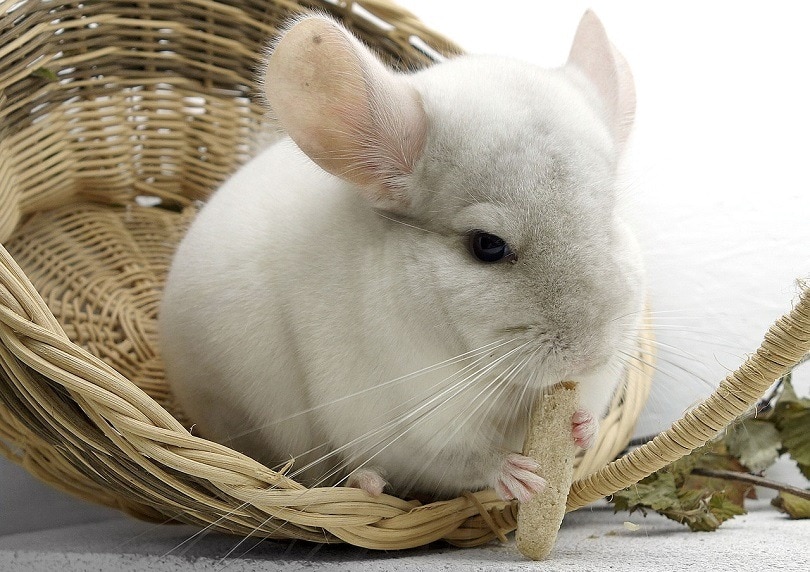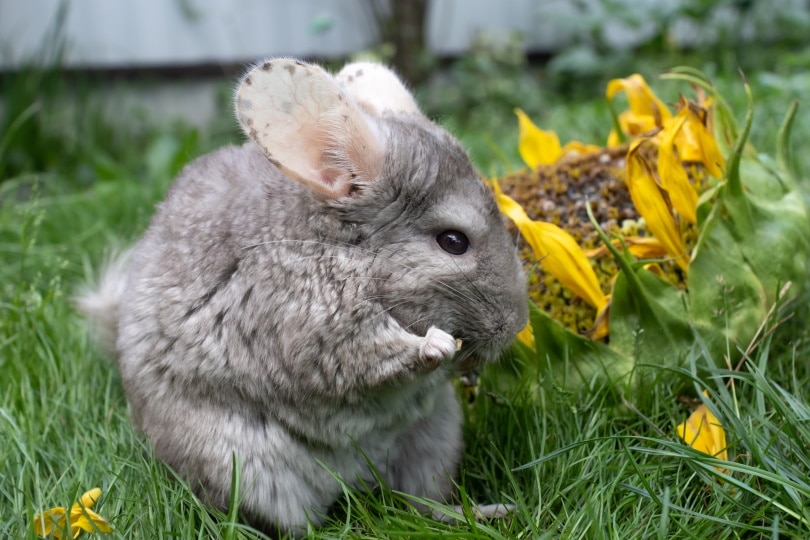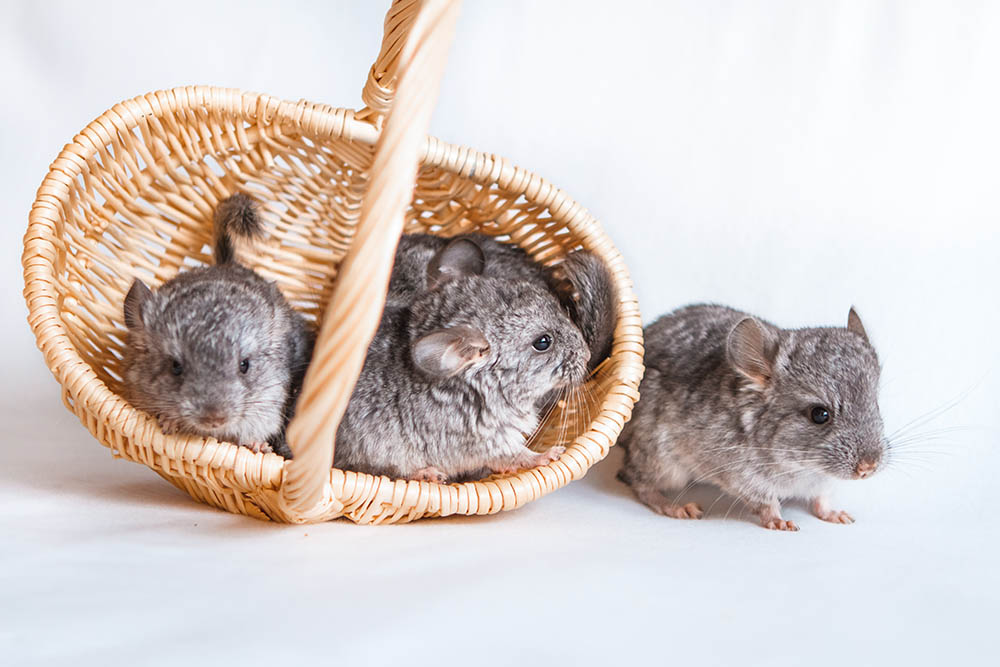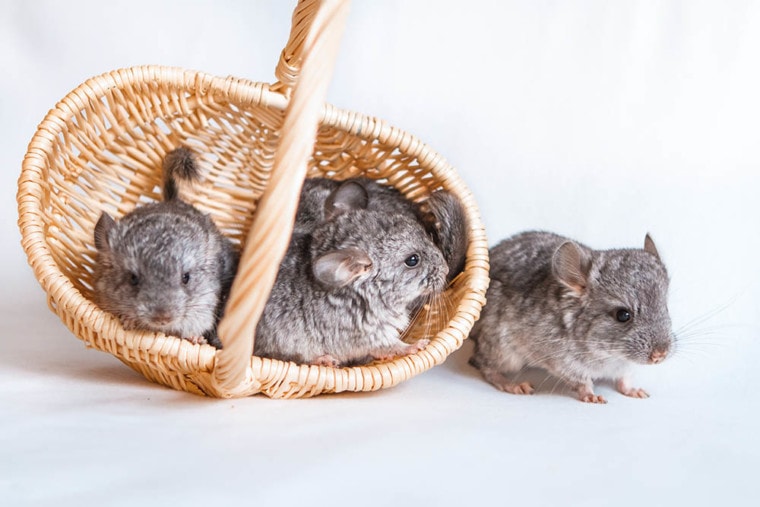
Chinchillas are adorable animals that are widely unknown to most people. The majority of people have never seen or handled a chinchilla, much less owned one. This means that there are a lot of questions that people end up having about chinchis. Chinchilla reproduction is one of the subjects that most people know the least about, so if you have ever found yourself wondering about the number of babies chinchillas have in a litter, keep reading for more info. The short answer is that chinchillas typically only have two babies per litter.
How Many Babies Do Chinchillas Have in a Litter?
So how many babies can a chinchilla have? Most of the time, chinchis only have two babies, or kits, in a litter. They can have as many as four kits per litter, with some people even reporting up to six kits in a single litter. It is possible for them to have a single kit in a litter, but two is the most common number of kits per litter for chinchillas. A single female chinchilla can have between one and three litters annually.

How Old Are Chinchillas Before They Begin Having Babies?
Most chinchillas are approximately 8 months of age before reaching physical maturity. Sometimes, chinchis are sold at pet shops as young as 6 weeks of age. However, most reputable stores and breeders won’t sell their chinchilla kits until they are at least 12 – 16 weeks of age.
It’s extremely important to understand that chinchillas can reach sexual maturity as young as 8 weeks of age. What this means is that an 8-week-old female chinchi may become pregnant, but because she has not reached physical maturity, she may struggle significantly with the pregnancy and you may lose the mother or the kits.
How Long Are Chinchillas Pregnant?
For small mammals, chinchillas have surprisingly long pregnancies. They are usually pregnant for 110 – 111 days. For comparison, humans are pregnant for about 280 days, while rats are pregnant for 21 – 23 days. This means that from birth to birthing its first litter will usually not occur until a chinchilla is around a year of age.
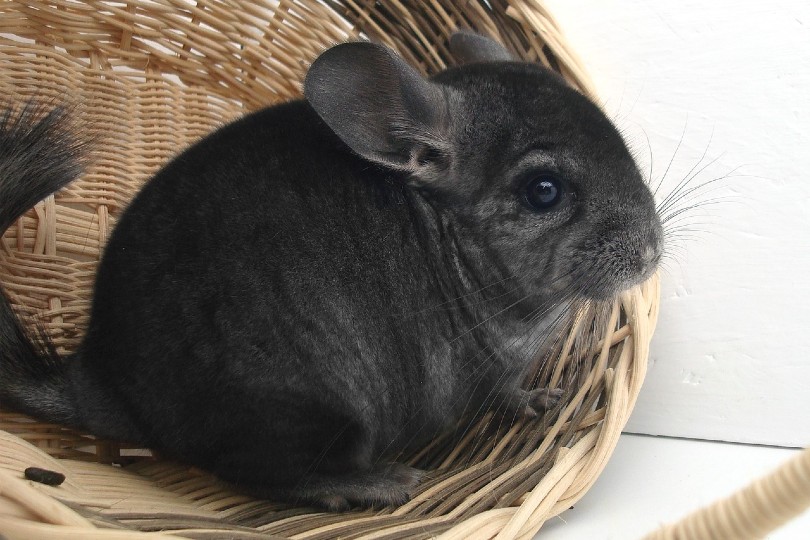
Are Chinchillas Easy to Breed?
Chinchillas are relatively prolific breeders, like many rodents. However, this doesn’t mean they are easy to breed. Breeding chinchillas involves proper introductions of the male and female to ensure successful breeding and to keep the male willing to breed. A male and female should be introduced before the female enters estrus. Once in estrus, a female chinchi will likely be receptive to breeding with a male she is comfortable with.
To maintain the safety of both chinchillas during breeding attempts, the male should be offered a safe place to hide from the female if she turns aggressive. Male chinchillas that have been attacked or experienced some form of aggression from a female during breeding attempts may become less receptive to future breeding from the female or any other female. Females are more likely to be aggressive when they are not in estrus.
Once the female has been bred, it may be necessary to remove other cage mates, especially cage mates that aren’t the father of the kits. Otherwise, the female may become aggressive toward the cage mates, especially as she nears labor. If the female becomes stressed after giving birth, she may injure, kill, or eat her young. Male chinchis are not commonly aggressive toward their own kits and are even known to help the female care for the kits, so you may be able to keep your male and female together throughout the pregnancy and after the kits are born. By the time the kits are weaning, which is around 6 – 8 weeks of age, they should be separated from the parents into same-sex enclosures to prevent accidental breeding.
Conclusion
Chinchillas are delicate animals that should not be bred by just anyone. There is a lot of knowledge that should go into breeding your chinchillas, and you should have a safe, proper environment for breeding and a backup enclosure for your kits to move to once they are weaned. Breeding your chinchillas without proper knowledge of their care or their needs during pregnancy or after birth can be detrimental, and even deadly, to your chinchillas.
Featured Image Credit: Polyanskaya Olga, Shutterstock


